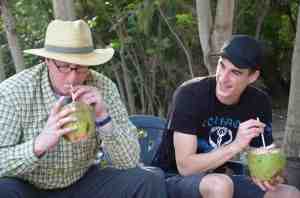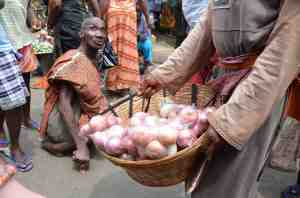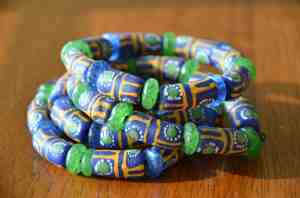 It’s funny how different words or configurations of such can pinpoint your geography faster than lo-jack on a stolen Honda Civic. Clothing, hair, eye, or skin color can always be deceiving, but an accent and word choice rarely are. As an undergrad in sociology we defined the ability to transition between cultures and languages as social capital, and similar to other forms of capital, it can be used to your advantage. Nailing an audition or interview, chatting at a cocktail or tailgate party, even ordering a 4×4 animal style, all boil down to one’s ability to speak well and blend in. This is my only hope in Ghana, where my skin, eyes, and hair add nothing to my conspicuousness. And sometimes I do ok, other times, not so hot.
It’s funny how different words or configurations of such can pinpoint your geography faster than lo-jack on a stolen Honda Civic. Clothing, hair, eye, or skin color can always be deceiving, but an accent and word choice rarely are. As an undergrad in sociology we defined the ability to transition between cultures and languages as social capital, and similar to other forms of capital, it can be used to your advantage. Nailing an audition or interview, chatting at a cocktail or tailgate party, even ordering a 4×4 animal style, all boil down to one’s ability to speak well and blend in. This is my only hope in Ghana, where my skin, eyes, and hair add nothing to my conspicuousness. And sometimes I do ok, other times, not so hot.
 There are certain words and sayings in Ghana that are unique but very helpful, a dictionary of which I’ve been meaning to write for a while now. If you’re going to pick some one up you simply say “I’ll pick you”, cutting out the unnecessary “up” which has always plagued the English language. If you want only a little of something, and really want to get your point across on the matter, add and extra small, or two or three. “Rice and chicken, stew small-small.” And the piece de résistance of pigeon-British-Ghanaian-English, add “oh” before or after everything. “It ain’t easy, oh”, “Oh, traffic’s bad oh.” But the most useful and oft spoken term, “Oh, sorry.”
There are certain words and sayings in Ghana that are unique but very helpful, a dictionary of which I’ve been meaning to write for a while now. If you’re going to pick some one up you simply say “I’ll pick you”, cutting out the unnecessary “up” which has always plagued the English language. If you want only a little of something, and really want to get your point across on the matter, add and extra small, or two or three. “Rice and chicken, stew small-small.” And the piece de résistance of pigeon-British-Ghanaian-English, add “oh” before or after everything. “It ain’t easy, oh”, “Oh, traffic’s bad oh.” But the most useful and oft spoken term, “Oh, sorry.”
This may seem to be a small (small) thing, but it’s unique to Ghana, a well placed “oh” can cover a multitude of social sins; everything from cutting someone off in traffic to eating the last fried plantain. But the other day it was brought to my attention that I’ve officially started to sound Ghanaian. I was in line at a grocery store when I threw an elbow into some guy’s chest. I turned to apologize, “Oh, sorry”, then a polite wave of acknowledgement from the gentlemen I clotheslined. After a few minutes of awkward sideways glances the man politely leaned forward and said, “You sound like us.”
I apologized at first, remembering my Polynesian roommates venting about haoles trying to speak pigeon straight off the plane, but quickly adjusted when he seemed to be pleased. He then explained the difference between the American apology and the Ghanaian one. Apparently, at least according to my new friend, the American way is cold while the Ghanaian “oh” saves the day again, making this version a bit more personal and meaningful. So try it out next time you need to apologize, throw in an “oh” and see what happens! And in true Ghanaian style, this encounter was an omen of the week of compliments to come, some good, some…other.
 The next day a man at church said I was very smart after a particularly pontifical comment I made. Then at an art market someone told me they liked my lifestyle because it was “easy.” But in a turn of, well sub-Saharan oddity, a 12-year-old student in a remote village told me I had “diseased pig skin”. This all occurred after a class of students took turns petting my newly bleached arm hair and pointing at my freckles. The brave boy in question pulled at my exposed calf hair and then gave me a hearty smack before uttering perhaps the weirdest comment I’ve ever heard. “Pig skin huh? Pig skin?” I shouted as I chased him around the classroom, pushing chairs and pupils out of my way as they squealed and snorted, a pudgy little snout appearing on my mind’s self portrait. Soon my American couch-potato body gave out and I left the class, still giggling and clapping at the odd Obruni encounter. I’m still uncertain whether I have pig skin or not, and if I do, what disease it has. I guess I’ll never know, oh.
The next day a man at church said I was very smart after a particularly pontifical comment I made. Then at an art market someone told me they liked my lifestyle because it was “easy.” But in a turn of, well sub-Saharan oddity, a 12-year-old student in a remote village told me I had “diseased pig skin”. This all occurred after a class of students took turns petting my newly bleached arm hair and pointing at my freckles. The brave boy in question pulled at my exposed calf hair and then gave me a hearty smack before uttering perhaps the weirdest comment I’ve ever heard. “Pig skin huh? Pig skin?” I shouted as I chased him around the classroom, pushing chairs and pupils out of my way as they squealed and snorted, a pudgy little snout appearing on my mind’s self portrait. Soon my American couch-potato body gave out and I left the class, still giggling and clapping at the odd Obruni encounter. I’m still uncertain whether I have pig skin or not, and if I do, what disease it has. I guess I’ll never know, oh.











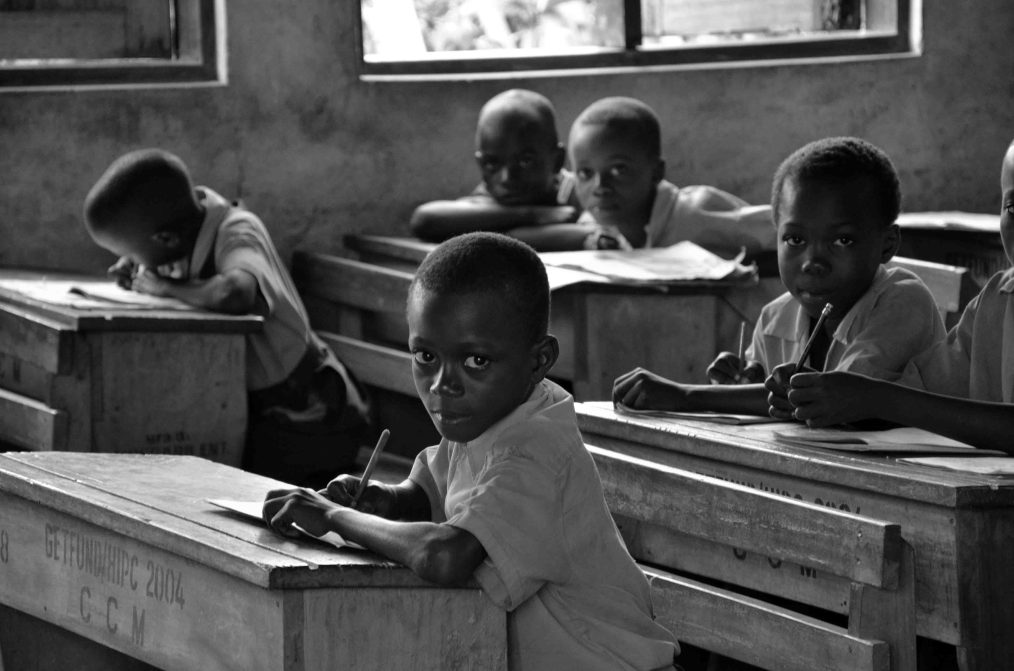

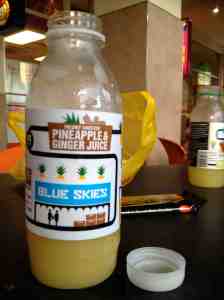

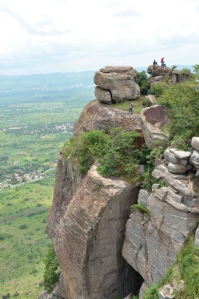


 Our next trip was out to Abomosu to visit the installations we did in February with
Our next trip was out to Abomosu to visit the installations we did in February with 






